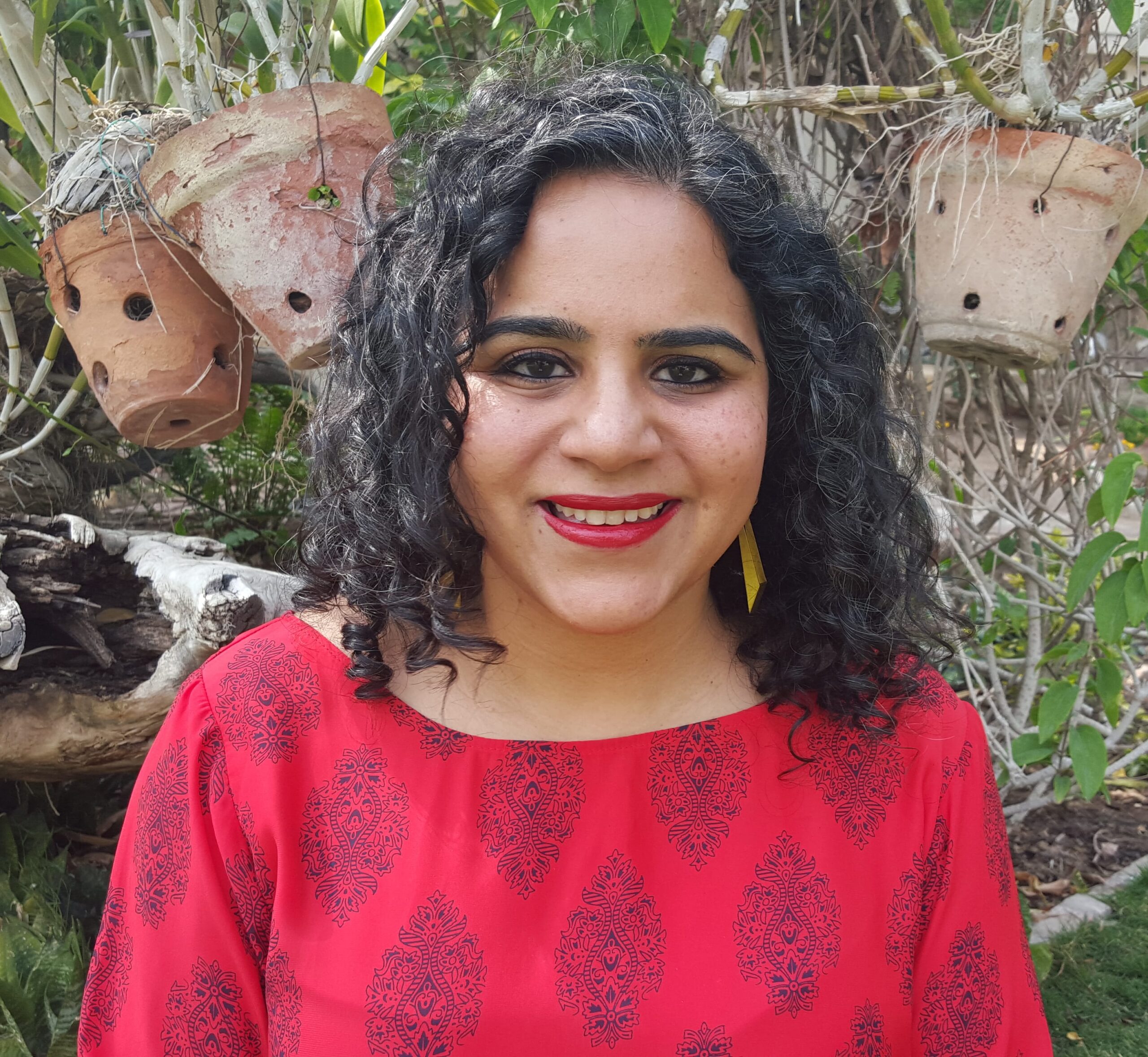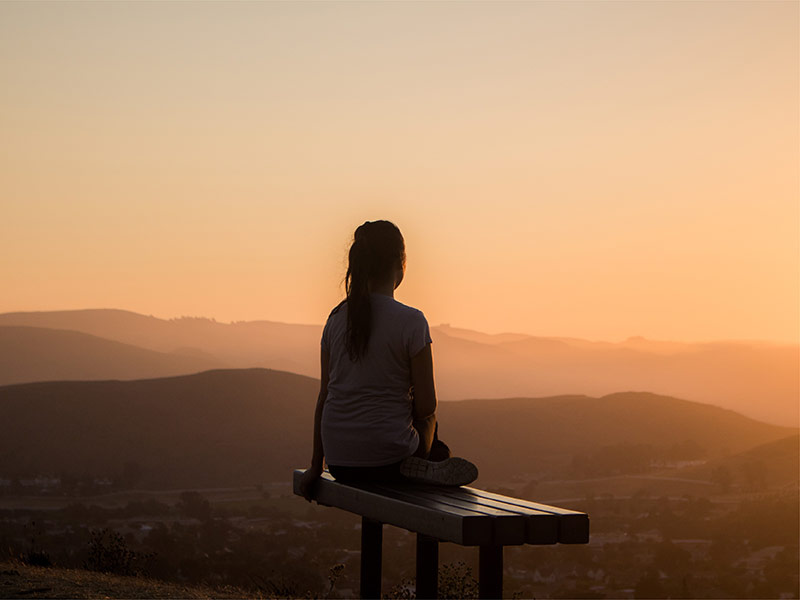Articles Tag: Self Care
How does exercise help us manage distress? What is the role of exercise in helping us stay physically, mentally and emotionally healthy?
Physical exercise is one of the most easily available forms of coping with distress. Exercise burns up the extra energy in the body and thereby reduces anxiety, improves our sleep and keeps us physically fit. It activates hormones in the body that make us feel pleasant emotions. Exercise strengthens the body and builds immunity, improving physical health and contributing to overall wellbeing.
It has been observed that physical exercise reduces the need for substance abuse. When we exercise in a natural environment it has even more benefits for our mind and emotions, and when practiced with a group of people it can improve our relationships. Additionally, when one sees and feels the results of the exercise in their body, it creates a feeling of achievement and boosts self-esteem.
So what kind of exercises are good for you? Walking, jogging, running, swimming, bicycling are just a few of them. Whatever medium you choose, regularly practicing it is key for it to positively impact your physical health. Exercise can be done by oneself, with a group of friends, or using an online video or book for guidance.
If you are finding it difficult to begin exercising then you can take certain steps:
- Start small by setting daily or weekly goals for yourself.
- Try to establish a certain time in which you exercise every day.
- Get some friends to exercise with you to increase your motivation
How can creative expression help to ease distress? What are different forms of creative expression?
One of the most popular ways that human beings have coped with, and continue to cope with, distress is by expressing it through creative mediums. This occurs through artistic practices like music, poetry, paintings, dance, sculptures or others. Perhaps that is why some of the greatest works of art have been created by people who have experienced mental health problems. Some examples include the prolific painter Vincent Van Gogh and the feminist writer Virginia Wolf, both of whom are thought to have lived with mental illness.
Expressing our distress creatively not only helps us channel it in a healthy manner, but also provides us with a snapshot of our state of mind at that particular point in time. During future periods of distress, revisiting that snapshot can be immensely healing by showing us that despite the angst we could produce such beauty, giving us hope and boosting our self-esteem.
It is also important to note that in order to successfully manage distress through creative expression, regular practice is required. So playing the guitar once every two months or writing a single poem may not have the same effect as regularly practicing those arts. Finding an outlet of creative expression may take time and it is normal to experiment with different ones before finding one which suits us.
So what are you waiting for? What is your creative medium of choice? Identify it and start practicing!
What are different breath and movement practices that can be used to manage distress?
Breath and movement practices consist of a range of techniques that can be used to ease distress. These include yoga, tai chi and qi gong which are practices rooted in ancient wisdom originating in China and India. These practices have a range of physical, mental, emotional and social benefits.
Physical benefits include stronger muscles, improved digestion and healthier breathing. Emotional benefits include better control over mood, a sense of calmness and feelings of relaxation. Mental benefits include improved focus, clarity of thought and increased productivity. If done with a group of people, these activities can also help us develop social relationships.
Breath and movement practice facilitators are listed under ‘Alternative Therapies’ in our seek help section.
Why is a balanced diet important for our health and managing distress? What happens if we don’t have a healthy diet?
One of the most important factors that determines our health is the type of food we eat. A healthy diet consists of a balance of all the nutrients that our body requires; carbohydrates, fats, proteins and micro-nutrients. Too much or too little of any of these nutrients harms our body and prevents it from carrying out its functions and weakens our immunity. In fact, many diseases that human beings experience are as a result of either eating too less or eating too much. In addition, what and when we eat also affects our mood and, thus, influences our ability to deal with distress. For example when someone is hungry then they often become irritable, tired and unable to focus on their work. Thus, maintaining a balanced diet is extremely important for holistic wellness.
When we are experiencing distress then our diet is one of the first things which is affected. Some people, when experiencing distressed, may lose their appetite and stop eating. Others start eating some types of food (sugary and junk foods) in order to cope with their distress. While this behavior can provide relief in the short run, in the long run it can further worsen distress since an unhealthy diet has a negative impact on our health.
That is why, even when we are distressed we must make an effort to ensure we have a balanced diet so we can manage it better.
Can lifestyle changes help you recover from a mental illness? What are some lifestyle changes that can help?
While mental health services and professional help may be useful for recovery, sufferers can make some lifestyle changes that can help them manage the symptoms of their mental illness and help them to recover.
Nutrition: What we eat greatly influences our mood. It is important to have a balanced diet consisting of all the essential food groups and to eat at fixed times and in appropriate amounts.
Routine: It is also important to regulate our sleep/wake cycle. If we don’t get enough sleep, sleep late at night and wake up late in the day, or are in the habit of sleeping too much, this may affect our mental health negatively. Practicing sleep hygiene is very important for recovery.
Remain active: One of the key mistakes made by sufferers is that they think that they need to take time off for recovery. While taking time off from stressful situations may be beneficial, it is important to remain active in some task or the other. Otherwise the negative thought patterns accompanying mental illness may overwhelm our minds, impeding our recovery. Prolonged inactivity is also a major cause of mental health problems in the elderly.
Improve and maintain relationships: Relationships are very important in that they offer us much needed social support. Having trusted people close to us who have a positive influence on our life really helps with recovery. This is why it is also important to work on the relationships that may have been damaged during the initial stages of mental illness. For more information visit the improving relationships section.
Fix harmful habits: Letting go of harmful behaviours that may have helped us cope when we were ill, such as substance abuse and harming others, is also important. If we continue with those habits, the chances of relapse greatly increase.
Healthy coping skills: One of the most important ways to recover from mental illness involves building resilience against distress by practicing healthy coping skills. For more information about different coping skills visit the manage distress section.
Mindfulness means to deliberately pay attention to your experience in the present moment (your physical sensations, thoughts, and emotions) with kindness and curiosity. In this modern, fast-paced life, we tend to operate on “automatic pilot” a lot of the time. Our minds are often disconnected from our bodies, and rather than bringing attention to our present moment experience, we get lost in thought – thinking and worrying about things that have already happened; or planning, thinking, and worrying about what may happen later. When we operate like this, we miss out on many of the moments of our lives. Additionally, not only do a lot of our routine tasks become automatic, even our emotional responses become automatic and habitual. We end up not having the presence of mind to respond thoughtfully and carefully to situations, and when we think about them later on, we may regret our instant “knee jerk” reactions. Mindfulness practice strengthens our ability to be more fully present in our lives, and to become aware of our experiences in difficult moments so that we may have a choice in how to respond to them.
You can try these guided mindfulness meditation practices below on your own. The Body Scan Meditation and Breathing Meditation practices can help you develop a greater awareness of your body and breath, and the Loving Kindness Meditation practice can help cultivate positive emotions, such as kindness and tenderness, towards yourself and others. If you are interested in more in-depth learning, Mindful Hearts offers a variety of mindfulness classes and workshops.
The Body Scan Meditation
You can complete this practice either seated or lying down. The guidance assumes you are lying down, but it is also okay to be seated in a comfortable, but alert position. If you are lying down, it is best to do so on a firm surface. A bed is okay as well, as long as it is not too soft.
Breathing Meditation
For this practice, it is best to be seated. You can sit in a chair, letting your back be upright, but not stiff. It is best to sit with your both your feet flat on the floor. If you require back rest, you can place a few cushions behind your back to be more comfortable.
Loving Kindness Practice
This practice can be done either seated or lying down.
The Trainer
Maheen Mohammed is a school psychologist with over 10 years experience working with children, adolescents, parents, and school staff in Canada and Pakistan. Having felt the profound impact of mindfulness as a support in her own personal life, Maheen was inspired to integrate mindfulness into her work with schools, and to pursue training in this field. She has been teaching mindfulness to children and adults since 2012, and is passionate about empowering people to use mindfulness to manage stress and anxiety, cope with difficult emotions, and deal with chronic pain and illness. Maheen is a Certified Mindful Schools Instructor (Mindful Schools, CA, USA) and an accredited Breathworks Mindfulness Teacher (Breathworks Mindfulness, UK). More information about mindfulness classes and workshops taught by Maheen can be found here.

Keywords / Tags
- Anxiety|Depression
- Anxiety|Mental Illness
- Caring for Sufferers
- Communication Skills
- Depression|Mental Illness
- Distress
- Distress|Grief and Loss
- Distress|Healthy Parenting
- Distress|Relationship Problems
- Empathetic Listening
- Healthy Life
- Healthy Parenting
- Managing Distress
- Mental Illness
- Relationship Problems
- Self Care
- Understanding Therapy
- Work/School Life Balance






